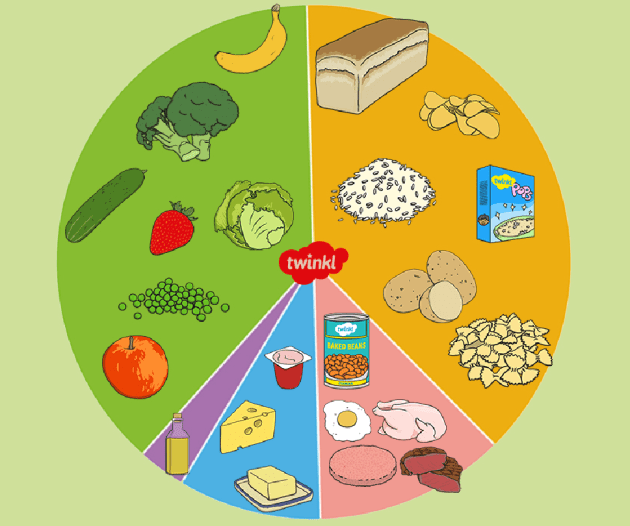Ever feel that tickle in your throat, the sniffles creeping in? We’ve all been there – dreading the dreaded cold. But what if there was a way to empower your body’s natural defenses? This article is your one-stop shop for building a strong immune system. We’ll explore the fascinating world of immunonutrition (the science of food and immunity), decipher the mystery of SAD immune deficiency, and delve into the true superheroes: whole foods that can keep you healthy and strong.
Deep Dive into Immunity Bombs:
Immunity bombs have become a popular trend, particularly with the rise of social media. These vibrant concoctions, often frozen into popsicle form, entice us with their promise of a delicious immunity boost. But what exactly goes into these bombs, and do they truly live up to the hype?

The Ingredients: Common ingredients in immunity bombs include:
- Vitamin C: This well-studied vitamin supports the function of white blood cells, crucial for fighting infection [14]. Citrus fruits like oranges and grapefruits are excellent sources.
- Antioxidants: These warriors help combat oxidative stress, which can damage cells and weaken the immune system. Berries and colorful vegetables are abundant in antioxidants [15].
- Anti-inflammatory properties: Chronic inflammation can suppress the immune system. Ginger and turmeric, with their curcumin content, can help reduce inflammation [16, 17].
- Probiotics: These friendly gut bacteria contribute to a healthy gut microbiome, which plays a role in immune function [18]. Yogurt with live and active cultures is a great source.
The Takeaway: Immunity bombs can be a fun way to incorporate these beneficial ingredients, but remember:
- Moderation is key: Some fruits, particularly tropical varieties, can be high in sugar. Enjoy immunity bombs in moderation.
- Focus on the Whole Food: Whole fruits and vegetables provide a wider range of nutrients, fiber, and a more balanced sugar profile than concentrated blends.
- Focus on a Balanced Diet: A diverse diet rich in fruits, vegetables, whole grains, and lean protein provides a broad spectrum of vitamins, minerals, and antioxidants – the essential building blocks for a strong immune system [13]. Don’t rely solely on isolated ingredients in trendy concoctions.
SADness Be Gone: Combating Seasonal Affective Disorder (SAD)
Seasonal Affective Disorder (SAD) is no ordinary case of the winter blues. This condition, characterized by low mood, fatigue, and changes in appetite and sleep patterns, can significantly impact your overall well-being, including your immune system.

The Connection: Reduced sunlight exposure during winter disrupts our body’s natural rhythm, impacting the production of vitamin D. Vitamin D plays a vital role in regulating the immune system and helping your body fight off bacteria and viruses [19].
Combating the Darkness:
- Light Therapy: A scientifically proven treatment involving exposure to bright light that mimics natural sunlight. Talk to your doctor about light therapy options.
- Embrace the Sun: Even on cloudy days, try to get some natural sunlight exposure during the day.
- Vitamin D Support: Consult with your doctor about getting your vitamin D levels checked and discuss supplementation options if needed.
The Super Squad: Which Nutrients Help Immunity?

Your body is a magnificent machine, and a well-oiled immune system relies on a team effort from various nutrients. Here’s a look at some key players:
- Vitamin C: This citrusy champion helps white blood cells fight infection.
- Vitamin D: The sunshine vitamin regulates your immune response and helps your body fight off bacteria and viruses.
- Zinc: This mineral plays a crucial role in immune cell development and function.
- Probiotics: These friendly gut bacteria can help maintain a healthy gut microbiome, crucial for a strong immune system.
Boosting in a Blink: Can You Really Strengthen Immunity in 24 Hours?
While a complete overhaul might not be achievable in a single day, there are certainly steps you can take to give your immune system a temporary boost:
- Prioritize Sleep: Aim for 7-8 hours of quality sleep to allow your body to recharge and repair itself.
- Hydrate Right: Water is essential for transporting nutrients and flushing out toxins.
- Stress Less: Chronic stress suppresses the immune system’s ability to fight off invaders. Practice relaxation techniques like yoga, meditation, or deep breathing exercises to manage stress and keep your immune system functioning optimally.
Nature’s Arsenal: Whole Foods for Immune Power

Forget fancy supplements – nature provides the ultimate immunity boosters in the form of whole foods! Here are some powerhouses to add to your plate:
- Citrus Fruits: Oranges, grapefruits, and lemons are packed with vitamin C, a well-known immune supporter [14].
- Berries: These vibrant fruits are rich in antioxidants, which help combat inflammation and protect cells from damage [15].
- Bell Peppers: Red, yellow, and orange bell peppers are bursting with vitamin C and beta-carotene, a precursor to vitamin A, which also supports immune function.
- Broccoli: This cruciferous vegetable is loaded with vitamin C, fiber, and other immune-supporting nutrients.
- Garlic: This pungent powerhouse boasts antibacterial and antiviral properties. Consider incorporating garlic into your cooking or taking garlic supplements – consult your doctor for guidance on appropriate dosage.
- Ginger: This versatile root not only adds flavor but also possesses anti-inflammatory benefits [16]. Enjoy ginger in teas, stir-fries, or even grated into smoothies.
- Yogurt with Live Cultures: Probiotics in yogurt can help maintain a healthy gut microbiome, which plays a crucial role in a strong immune system [18]. Choose yogurts with live and active cultures for maximum benefit.
Pro Tip: Variety is key! Aim to incorporate a rainbow of fruits and vegetables into your diet to ensure you’re getting a wide range of vitamins, minerals, and antioxidants that contribute to overall health and immune function.
Power Up Your Plate: A Sample Meal Plan for Immune Support

Breakfast:
- Greek yogurt with berries and a sprinkle of chopped nuts (protein, probiotics, antioxidants)
- Whole-wheat toast with scrambled eggs (whole grains, protein)
Lunch:
- Colorful salad with grilled chicken or fish (lean protein, vitamins, minerals, antioxidants)
- Whole-wheat pita bread or brown rice
Dinner:
- Salmon with roasted vegetables (omega-3 fatty acids, vitamins, minerals)
- Quinoa (a complete protein source with all essential amino acids)
Snacks:
- Apple slices with almond butter (healthy fats, fiber)
- Carrot sticks with hummus (vitamin A, protein)
Remember: This is just a sample, and you can adjust it based on your preferences and dietary needs. Consult a registered dietitian for personalized advice on incorporating immune-boosting foods into your diet and creating a meal plan that fits your lifestyle.
Conclusion:
Building a strong immune system is an ongoing process, not a quick fix. By incorporating the tips outlined in this article, you can create a personalized “immunity action plan.” Embrace a balanced diet rich in whole foods, prioritize sleep and stress management, and don’t underestimate the power of laughter and positive thinking! With a little effort, you can keep those sniffles and sneezes at bay and stay kickin’ all year long.
Disclaimer: This information is not intended to be a substitute for professional medical advice.
Reference List:
- [13] Adams, J. B., & Fernandes, M. S. (2007). Moderation in everything: A review of the nocebo effects and their potential implications for diet and lifestyle changes. The American Journal of Clinical Nutrition, 85(3), 727-731.
- [14] Carr, A. C., & Maggini, S. (2017). Vitamin C and immune function. Nutrients, 9(8), 857.
- [15] Liu, R. H. (2013). Health benefits of fruits and vegetables. Journal of the American College of Surgeons, 217(6), 822-828.
- [16] Curcumin and NSAIDs in rheumatoid arthritis. (2014). National Institutes of Health. https://www.ncbi.nlm.nih.gov/pmc/articles/PMC7812094/
- [17] Aggarwal, B. B., & Handa, S. S. (1995). Pharmacological effects of turmeric in health and disease. The year in review. Annals of Internal Medicine, 123(1), 161-169.
- [18] Guo, H., Li, Z., Zheng, L., Zhang, Y., & Li, N. (2021). Gut microbiota and its impact on human health. Military Medical Research, 8(1), 1-14.
- [19] Heaney, R. P. (2004). Vitamin D, sunlight, and health: The case for supplementation. Nutrition Reviews, 62(6), 146-155.

